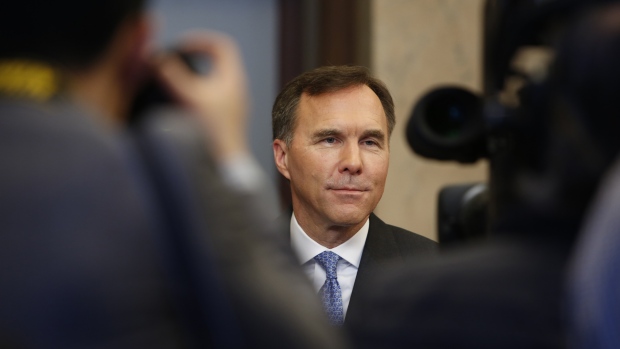Mar 20, 2019
‘Opportunity missed’: What these analysts hoped to see in the federal budget but didn’t
, BNN Bloomberg

The federal budget, largely seen as a pre-election document, introduced measures on Tuesday that targeted a number of different groups. From support for debt-burdened students and worried retirees, to help for first-time homebuyers, the budget was wide-reaching.
However, there was no roadmap back to balance. The budget also lacked measures to address corporate competitiveness, an issue the Canadian business community has repeatedly expressed concern about, or a plan to help aid the country’s battered energy sector.
Below, economists and business leaders weigh in on what they thought was missing from Finance Minister Bill Morneau’s fiscal plan.
Goldy Hyder, president and CEO, Business Council of Canada
“There’s a number of things missing in this budget. First and foremost, it is very important to have a fiscal plan to pay down our deficit. I know [Morneau] is very passionate about saying our debt-to-GDP ratio leads the G7. But the reality is, if you don’t plan it, it’s not going to happen any time soon … This government has to be concerned about the potential of a recession.”
Hyder added competitiveness issues need to be addressed in this country, specifically in terms of the amount of red tape that he says is “suffocating” businesses. He also said a strategy for Western Canada is something he felt was missing.
Douglas Porter, chief economist, BMO Capital Markets
“If there was one thing I would have liked to have seen in the budget, it would have been any kind of trim in marginal tax rates, no matter how small – either corporate or personal. I believe that Canada does have serious competitive challenges, and even small trims in taxes could have been one channel through which fiscal policy could have supported competitiveness. Opportunity missed.”
Ed Devlin, head of Canadian portfolio management, PIMCO
“There’s two things government can do: They can redistribute wealth, or the pie, or they can grow the pie. In a perfect world, they’d do both. This particular budget, and I would actually say a few of the past budgets, have been light on growing the pie in terms of creating incentives for investment and productivity so that we can pay for all of these social programs that we’d like to have.”
Benjamin Tal, deputy chief economist, CIBC World Markets
“More money to pharmacare and better tax treatment to family care givers.”



